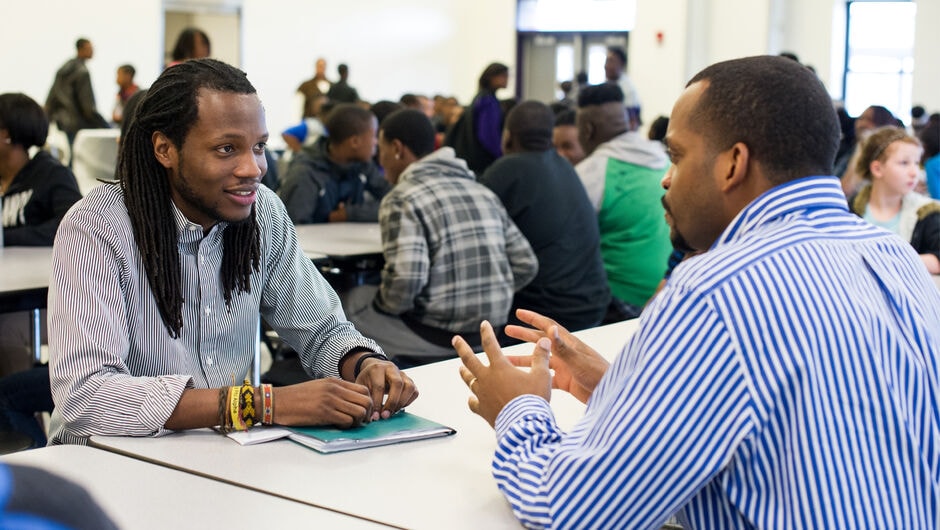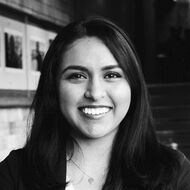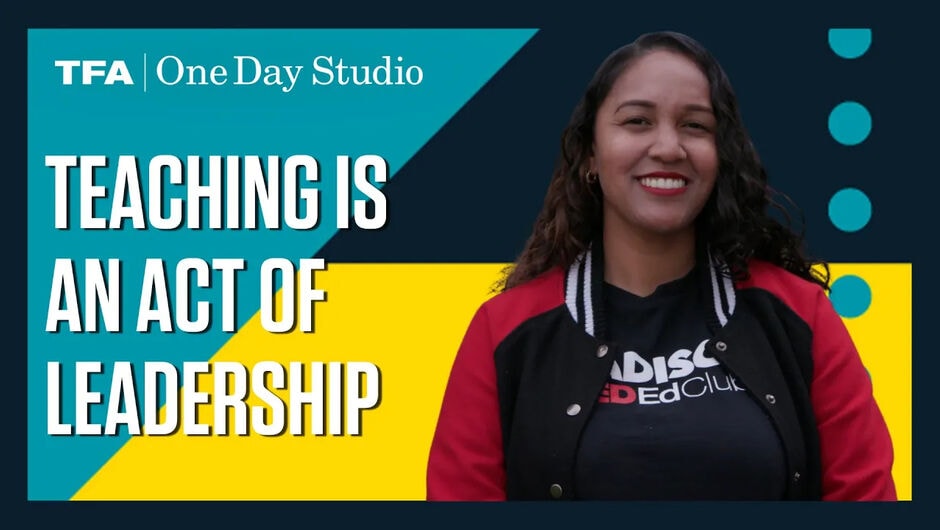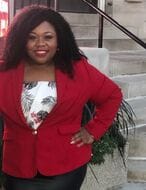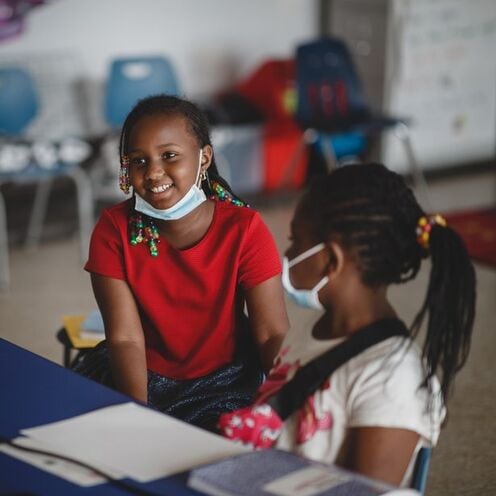
Season 2, Episode 1: The Purest Form of Activism
Creating safe spaces that value and invest in young Black leaders.
Host Jonathan Santos Silva speaks with leaders and educators from The Center for Black Educator Development in Philadelphia, PA about how to create safe spaces that value and invest in young Black leaders. Guided by the lens that excellent education is a political act, Sharif El-Mekki and his team members, Teach for America alumni Makael Burrell and Danielle Thomas, at the Center introduce students to the idea of teaching and demonstrate how restoring education to disenfranchised students is the purest form of activism.
Listen
View transcript
Last season, we traveled across America and learned from six schools taking fresh approaches to move education in a new direction.
We walked away with a greater understanding that students thrive in environments rooted in relationships and reciprocal care.
This season, we’re exploring something NEW. We’ll be taking a closer look at how creating healthy environments for our students starts with the environment we create for our educators.
While nearly 4 in 5 public school students identify as a person of color, only 1 in 5 teachers do. That’s a huge difference.
Studies show that students benefit from having teachers who look like them.
Black students with just one Black teacher by third grade are 13% more likely to enroll in college. And young Black men are 39% less likely to drop out of high school if they’ve had at least one Black teacher by elementary school.
But did you know that white students also benefit from having BIPOC teachers?
Exposure to new perspectives has the potential to challenge implicit bias and dispel racial stereotypes. BIPOC teachers help disrupt preconceived notions and one-sided portrayals of the world and instead, offer invaluable insight to students across various racial and ethnic backgrounds.
(THEME MUSIC IN)
This season, we’re investigating the barriers that keep BIPOC teachers outside of the classroom. We’ll be talking to innovative nonprofits from across the nation that are committed to attracting, training, and retaining BIPOC educators.
MAKAEL BURRELL, GUEST:
Black kids need Black teachers who look like them. As a queer Black boy growing up in Philadelphia, I needed someone who had the jazz that I had and who had the sexual identity that I had. So I bring a lot of intersectionality to this work.
SANTOS SILVA:
From Teach For America’s One Day Studio, you’re listening to Changing Course. I’m Jonathan Santos Silva, a 2010 Teach For America alum on the Pine Ridge Reservation in South Dakota, and since leaving the classroom, I haven’t stopped partnering with educators, students, and communities to reimagine education.
We have so much to learn from leaders across America moving education in a new direction, and a change in course will happen one school at a time.
(SOUND BITE: SCHOOL BELL)
(THEME MUSIC OUT)
(UPBEAT MUSIC FADES IN)
SANTOS SILVA:
Historically, Philadelphia was a meeting place for big decisions and revolutionary acts. It’s no wonder that the spirit of revolution lives on in the “City of Brotherly Love” through groundbreaking organizations like the Center for Black Educator Development.
The Center launched in June 2019 with the mission of revolutionizing education by rebuilding the Black Teacher Pipeline. By exponentially increasing the number of Black educators in the classroom, previously disenfranchised students would reap the full benefit of quality public education.
Today, we’ll look at how education IS a political act. We’ll explore the unique ways the Center is raising up the next generation of Black teachers by investing in candidates as early as 10th grade.
Let’s hear from our guests, starting with Sharif El-Mekki, Founder and CEO of The Center for Black Educator Development.
(UPBEAT MUSIC FADES OUT)
(SOUND BITE)
SHARIF EL-MEKKI, GUEST:
I'm the son and grandson of Black Panther Party members. I've come from a community that has really been focused on loving their community and fighting for racial justice, economic, educational, environmental justice. And a husband, father of six children and a 30-year educator at this point.
SANTOS SILVA:
Wow. Beautiful.
EL-MEKKI:
Teacher and a principal for 26 years. In 2014, started supporting Black men. What I couldn't stop thinking about was, what would it take to recreate, rebuild, a National Black Teacher Pipeline?
SANTOS SILVA:
Hmm.
EL-MEKKI:
And so we launched the Center for Black Educator Development in 2019 to explore, investigate, and try to do just that, rebuild the National Black Teacher Pipeline.
SANTOS SILVA:
The Center offers high school students (as young as the 10th grade) and college aged students the opportunity to explore careers in education. High schoolers serve as Junior Servant Leaders while college students (tasked with designing lesson plans, analyzing learning outcomes, and managing classroom dynamics) lead as Servant Leader Apprentices. The Black Teacher Pipeline is marked by mentorship provided by expert Black teachers.
SANTOS SILVA:
I wonder as we're like setting up to talk about your work of today, like what about your childhood? What about some of those intentional moves your parents made kind of set you up to be the educator and the leader that you are now?
EL-MEKKI:
Yeah, that's so interesting 'cause they certainly weren't necessarily promoting, “Oh, Sharif, you should become an educator or teacher.” But what I would say is that they instilled a level of activism. Not only instilled it, they modeled it. They modeled this idea of giving back to your community.
Like, that was the grounding in the school context of like, what we were about. Like unity, self-determination, creativity, purpose, collective work, and responsibility. There's a whole ecosystem of activists in Philadelphia that I feel like we grew up in and under their tutelage, under their mentorship. And I think that the ecosystem really laid the foundations for us and my mother's five children, we’re all teaching in some type of way.
I had a just amazing childhood in growing up and I think all of those, both my teachers and educators, mentors, as well as my parents and family, they just poured so much into us that once we were able to… Once Dr. Martin Ryder, who recruited me into teaching, once he helped us see the connection between educational justice and racial justice really deeply, and I remember him talking about “the purest form of activism is teaching Black children well.” That has still fueled me or 30 years now as a educator. But I think the seeds were there. He watered them with helping us connect the dots.
SANTOS SILVA:
Oh, that's beautiful. You know, that idea of… The principle of reaping and sowing, you know, your parents sowing these seeds, and then you have brothers and sisters throughout your life kind of pouring into you. Never knowing exactly where you would land, and here you are starting this amazing organization, the Center for Black Educator Development, to continue that activism that the good doctor planted in your mind. That idea. So when did that switch come off? Because I think when I met you, I think you were still a school leader. The fellowship had already started, but my guess is that the idea for the center was already there somewhere. Maybe that was tickling your brain at some point there. How did it come to fruition?
EL-MEKKI:
Yeah. You know, there were a couple things. I think the idea of like, what would it take to rebuild a Black Teacher Pipeline? I had the opportunity to hear from a lot of different people how they were approaching the work. It often seemed like there were pieces missing in the pipeline. Folks were thinking about it from one angle, which was important, but then what? And then what's next? But then what happens after that is one of the things that kept bothering me.
Working not only with The Fellowship and these Black men in Philadelphia and us recognizing, 17 of us, all from all over the country where we were all working in Philadelphia, all were successful in their job. Master's degree and above. Relatively good looking, you know, the works, you know-
SANTOS SILVA:
(laughs).
EL-MEKKI:
... well-read all the things, right? But what we realized was that 17 Black men in Philadelphia, not a single one of us had been invited into the profession until after we had graduated from college.
SANTOS SILVA:
Hmm.
EL-MEKKI:
And for us to all have that same story as we were getting to know each other and our whys and what led us to the path, it just seemed odd that how is it that none of us had been tapped on the shoulder, and invited into this sacred profession before then? Until people saw us and like, "Hey, you know, you're active. Oh, hey, you're great with kids. Hey, you should have, have you ever thought about teaching?"
And one of the first things we did was ask our colleagues. Most of them were white women. And the average response that our colleagues gave was third grade was when they recalled some adult inviting them into the profession, tapping them on the shoulder, telling them, "Oh, you'll be a great teacher one day."
So third grade for one group. Post-bac for another group. Again, we're talking about like planting seeds. That was one of the things that just stuck with me like, “Huh, that's so interesting.” And then the other thing was realizing that Philadelphia like, many places did not have a single teacher academy, so to speak. So in 2018, we piloted something in our school. I was still the sitting principal. I went to a couple of our staff members and we were poised to hire a couple of our alum and we said, “Suppose we hired you this summer to teach?”
We always had like a onboarding for our incoming students. We were 7th to 12th grade building or school. And so our sixth graders who are coming in, in the summer, we would always have programming for them.
And it's usually the adults and just the sixth graders. The rise in seventh graders. And so we said, “Suppose we added some high school and college students to the mix and they helped lead it?” Particularly the ones who were interested in teaching.
You know? There's such an assumption that, “Oh, you were a student, so you know what teaching is,” when no, that's the exact opposite. You know, many of them, we want them to consider becoming the teachers they wish they had and knew they needed.
SANTOS SILVA:
(laughs).
EL-MEKKI:
To create the experiences that they wish they had access to and knew they wanted, right? And for them to be able to have a different experience through our programming, and then be able to create that.
We wanted to use the Freedom School model, Black Panther Liberation Academy model, and the Independent Black School Movement, which was the school I went to. [inaudible 00:12:40] was an independent Black school.
SANTOS SILVA:
Freedom Schools, developed during the 1964 Freedom Summer in Mississippi by the Student Nonviolent Coordinating Committee (or SNCC), were intended to counter the “sharecropper education” then received by many African American and poor white students.
For six weeks in the summer, students received a progressive curriculum (including reading, writing, arithmetic, history, and civics) designed to prepare them to become engaged political actors on their own behalf.
EL-MEKKI:
So that was kind of the mix and started the forming and ideation of, “Huh…suppose we had an organization that could think about this all the time instead of in the summer, or nights or weekends?” and that type of thing.
And so all these different experiences helped shape and form what the center is today. Not only my experiences, but my colleagues experiences as well.
SANTOS SILVA:
I would like you to speak to the challenge that we're still facing, right? There can be a Center for Black Education Development, and yet we still could have a very serious challenge before us.
And here's a stat that we got in research, which was in February of this year, the State Department of Education, revealed that 96% of Pennsylvania teachers are white, making the educator workforce the least diverse in the country. Although we're talking about, what did you say, 27 new teachers because of this program, the hundreds that ideally will come-
EL-MEKKI:
It’s a drop in the bucket...
SANTOS SILVA:
... Yeah.
EL-MEKKI:
I think now is about 94%? So there's a tiny incremental progress. And I think for us, this is why policy is so important. We can do the grassroots, we can recruit, but if it's hostile environments, if the certification processes are confusing, if there are other racial biases baked into the system, it's gonna be hard to not only recruit, but especially to retain these Black teachers.
And so for us, for an example of this is Senator Vincent Hughes, a state senator, who worked with his colleagues across the aisle, as well as within his own section to write up Senate Bill 99 that the governor recently signed into Pennsylvania School Code, which allows for one, more transparency.
Before that you had to sue to get information about the diversity, both in the college level as well as in the districts and across the state. Provides for CTE, which allows career technical education for a teaching to be listed under that. Before it was not listed under that.
So you could get CTE credits, career technical education credits for maintenance, plumbing, early childhood education, you know to work in the daycare center, but not to work in kindergarten. Not to be a kindergarten teacher. So, them changing that, I’m, just really grateful for Senator Hughes's leadership and his role in this space to create avenues so that we can run faster, be more effective, and be even more deliberate.
Working with policy makers, working with colleges, right now, we have an e-learning series for example. We are partnering with colleges from around the country. This year, over 400 undergraduates will be taking our course, recognizing that so many educated prep programs are missing the mark when it comes to preparing people to teach in Black and Brown communities, and there were so many ed prep programs that saturate people in white educational theorists, white behavior theorists, white child psychologists, and then send them to teach Black and Brown kids, right?
SANTOS SILVA:
Mm-hmm.
EL-MEKKI:
Like, you know, meanwhile being grounded in theories of theorists who never even envisioned Black and Brown folks being a majority of public school students, if they envisioned them participating at all. Even though Black folks kind of really cemented the idea of public schooling for all.
So you're 100% right. It's not enough just to have the Center. We have to also see how we're gonna influence the ecosystem, even though our direct work is the Black Teacher Pipeline.
SANTOS SILVA:
One of the most important ways that the Center is impacting the Black Teacher Pipeline is through its financial investment. For example, $40,000 goes to each Black Teacher Pipeline fellow, $20,000 in scholarships while they're in college, as well as up to $20,000 in retention bonuses. Becoming a teacher is expensive and the Center is committed to making that load a little lighter.
EL-MEKKI:
Because at the end of the day, we just want to make the road smoother so the next generation can run faster, be more deliberate, be more aware and conscious, be more effective, right? Like, that's what all of this is about.
(MUSIC FADES IN)
SANTOS SILVA:
The Center for Black Educator Development has a longstanding relationship with Teach for America. Sharif credits TFA for their partnership in helping turn low-performing schools around early in his career. Many of the student apprentices have gone on to work as corps members, and several of the Center’s directors are also TFA alum.
After the break, we’ll continue our conversation with two leaders from the Center, but first, we wanted to ensure you hear from students across the country who are being impacted by teachers who share their identities. Throughout this season, we’ll be lifting up the voices of students of color as they reflect on their experiences.
Here’s Kimora Hargrove, a junior at Henderson Collegiate in Vance County, North Carolina.
KIMORA HARGROVE, GUEST:
Growing up, I didn't have no Black teachers. I probably only had like one or two Black teachers before I came to Henderson Collegiate. I had a lot of teachers of my race teach me and I feel like that's good because it just shows me that I can do this too. Like if you teaching at my school, I can do it too. And it make me feel like, 'Okay, it’s like you understand me.
(MUSIC FADES OUT)
MIDROLL AD BREAK
(MUSIC FADES IN)
SANTOS SILVA:
The Center for Black Educator Development seeks to rethink and liberate education through presence, practice, and policies. More specifically, by ensuring the presence of Black teachers in schools across the country, incorporating diverse cultural practices and antiracist mindsets, and enacting policies that liberate the most vulnerable students from constraints real and imagined.
Let’s meet our next guests starting with Danielle Thomas, also known as Danie. She is a 2011 Teach For America Philadelphia alum and serves as the Center’s Assistant Director of Professional Learning.
DANIELLE THOMAS, GUEST:
When I'm thinking about the things that have been most important for me, it has been around a building of capacity. My upbringing has been one that has been grounded in faith and spirituality, and seeing people, their experiences being empathetic, being compassionate, and what that means and so for every role that I've been a part of, it's been a space where I have been able to lead through some of those values.
And it's been a blessing because within my role, creating professional development series that are grounded in cultural proficiency for teachers, for leaders, that is going to be from, you know, microaggressions, understanding implicit bias or socialization, all of those things. And within that work, I feel like I'm able to build people's capacity so they can love and serve others better, wholeheartedly, and to do it with intention.
SANTOS SILVA:
Here’s Makael Burrell, who began as an intern before eventually becoming the Center’s Director of Instructional Coaching and Development.
BURRELL:
I'm from the great city of Philadelphia. Brotherly Love and Sisterly Love, not just affection. 'Cause you know, the sisters bring the love. I am a first generation high school graduate. Like, let's not even talk about college. My mother and father both completed the 10th grade, so my milestone for like life, I was like, "If I can graduate from high school, I'ma be the jam. Like I can compete in the global economy."
So just the mere fact that I'm a Black male, from an urban community living and growing up in abject poverty, to be able to sit at the table to talk about Blackness and Black intellectualism, and all things, is humbling.
I come from humble beginnings. Education has truly created a space for me to do great things in the Black community. I do this work because it is so necessary. Black kids need Black teachers who look like them. But if you really wanna get granular what I needed as a Black boy, as a queer Black boy growing up in Philadelphia, even before I acknowledged that I was queer, I needed someone who had the jazz that I had and who had the sexual identity that I had. So I bring a lot of intersectionality to this work. Danie and I both served as managers of teacher leadership and development for the greater Philadelphia region.
SANTOS SILVA:
Managers of Teacher Leadership and Development, or MTLDs, are experienced teachers who provide coaching and support to all Teach For America corps members.
BURRELL:
And I must’ve been like, "Who's that cute Black girl?"
SANTOS SILVA:
(laughs)
BURRELL:
And then she opens her mouth, and you're just like, "Wow. Beautiful and intelligent." And that's how our work relationship began. And she's a member of Alpha Kappa Alpha Sorority Incorporated.
THOMAS:
Well, come on brother. Shout out to AKA. I love you.
SANTOS SILVA:
Very cool. Tell me a little bit about the apprentices that come to the program. What does it mean to be an apprentice at the Center?
BURRELL:
So first I wanna just say teaching Black children well is revolutionary. And being able to serve as a teacher and school leader has been transformational for me. I just remember saying, “Where are the Black men?” Granted, I was under the tutelage of phenomenal Black women. I have worked alongside Danielle Thomas, Dr. Kelly Seaton and Jemina Bernard, Tiffany Williams, Susan Asiyanbi. But I kept saying like, “Where are the Black men?”
So for apprentice, I want you to think about it this way. I'm a sports guy. LeBron James, King of basketball right now, right? He didn't start playing basketball at 20. He came with all of these great things. So he probably got a Fisher-Price court, and then he probably did some AAU, and then he got some private coaching. He was like an apprentice of basketball of sorts. So we're saying, in order for us to rebuild the Black Teacher Pipeline, Jonathan, we can't come to you and Danielle senior year after you've taken all your pre-med courses and say, "Don't you wanna teach for $40,000 a year in a really, really difficult, challenging, community under this bureaucratic like racist system?" And people are like, "No."
So we're saying, let's go to high schoolers. Give them opportunities after school during the school year and during the summer where they get a real at-bat at teaching.
I'm talking about high schoolers. Ninth graders who get to teach language and literacy, focus on foundational skills and literacy for five weeks in the summer and get paid. And we also recruit college students. They are servant leader apprentices where college freshmen through seniors also get an at-bat where they serve as the teacher of record for rising first, second, and third graders. So they get coached by mentor teachers. They have to submit lesson plans, they go to training, they go to professional development.
So this apprenticeship is grounded in actual theory and practice to say, "We believe in you and we believe in the education of Black and Brown kids so much that we are going to come to you even at 14," right? And we're gonna give you a true at-bat to serve. So by the time you enter the teaching field, after you graduate with your undergraduate degree, you have all of this experience because we know we pour into what we believe in, in this country. We believe in football. That's why there's all these ways for football players to get at-bats at being football players. That's what we're doing at the Center the Black way.
SANTOS SILVA:
That's beautiful. On the other side of these apprentices are scholars. Tell me about the young scholars that the apprentices work with.
BURRELL:
So in short, Freedom School Literacy Academy is a five week program. In order to rebuild the Black Teacher Pipeline and give the servant leader apprentices, and the junior servant leader is an at-bat at teaching, you need the students. So the scholars are rising first, second, and third graders at various schools throughout the city.
And when we say scholars, we mean students. And what I love about it, I remember the first time I heard scholar and I heard a person push back on it and was like, "But what makes them scholars? They haven't earned anything. When I think of a scholar, I think of intellectualism, I think of people who earn PhDs.” And I'm just like, "Ugh. That's such a narrow definition of what scholarship is." Black kids are geniuses in rising first grade, second grade, and third grade. So just in layman's terms, they are the students that we serve.
SANTOS SILVA:
Do either of y'all have a story or experience that comes to mind that shows how important it is for scholars, young Black students, young Black learners to have Black teachers, even if they're, I don't wanna say only apprentices, but even if it's an apprentice, even if it's another young person. A story to illustrate how important that is.
BURRELL:
I met a kid named Jovan Watkins. Ninth grader who was just so gifted and so smart. He worked so hard for me and he did not have an easy life. He was not with his biological parents. He grew up in abject poverty. He faced a lot of challenges. And I like…Really, I didn't know how to be a teacher, right? Jonathan and Danielle, I was following this script from a charter school like “high expectations, no excuses.”
And I remember him running to give me an essay, but I was like, "My door is closed at 9:00 AM," and my door had closed. And I'm like, "Jovan," and I'm asking the world to give me grace. I was 23 years old and I'm like, "Your paper is late. I cannot accept it." And it was raining that day and he was drenched. And I just remember his eyes being filled with water.
And basically he was telling me like, "I stayed up all night. Some things happened in my family, like, I got moved to a different home. Even if you don't give me a grade, can you read it and give me feedback?"
Jovan changed my life. By far one of the most powerful Black men I've ever met. He was actually the speaker at his high school graduation. At that point I had transitioned to Teach for America. I did not tell anyone I was coming. The only person who knew I was coming was my nephew who was a part of that class. And I didn't know he was going to be a speaker and he started his graduation speech with, "I met a man named Mr. Burrell in ninth grade. And he told me ‘There's no testimony without a test.’" And I balled my eyes out throughout that entire graduation. And that moment I knew that I had changed lives. He was already gifted, like academically, but it's so much more than that. And I'm not saying that Black males are monolithic. Like there are queer Black men, right? There are Muslim Black men. But it was something about connecting with Black men that we just got each other. And that's something that I needed.
SANTOS SILVA:
Whew. Mr. Burrell, (laughs) you got chills for everybody. (laughs)
So, could you tell me a little bit more about your work? What's your theory around PD, your vision for professional learning when it comes to the apprentices and the teachers that you support?
THOMAS:
Yeah, well essentially, so my team, the professional development team we partnered with different school districts, different schools, different organizations to provide professional development through a culturally proficient lens. And so essentially when we're talking about microaggressions, when we're talking about reflecting on your own cultural lens, what that means for how you show up with children, when we're talking about understanding your socialization and what that means for your archetypes, your beliefs, because essentially we know that our beliefs, are going to really impact our actions and our interactions with other people.
And so when I'm thinking about my role with reaching teacher leaders, leaders in schools, and leaders in school districts, I think it's really, really important for there be to examples. So often within education, and even when I'm thinking about being a special educator, everything is grounded around theory. "If you do this, then this should happen and da, da, da." And it's like, "Okay, so I did that and actually this happened and I need you to tell me what I'm supposed to do from here."
A lot of our PD, I'm not gonna lie to you, it gets very vulnerable in that it requires people to really reflect on their beliefs, on their actions and the experiences with children, with other staff, and with the families of their students. And so I think that PD should be grounded in understanding your own purview, but what that means and how you show up and how people receive you in whatever capacity you're serving in.
We have this activity that we do within our PD, it's a cultural iceberg. They're the things at the surface, right? If you're picturing an iceberg or Titanic, there are things at the top, right? The surface. Then there are things that are beneath the surface. So often when I think about our interactions and operations with one another, it's all surface. It's based on the things that we can see, right? Easily understand. But the things that actually matter are so much deeper. How we communicate with one another, your idea on time, or what respect means, and if we're gonna be honest, that whole idea of respect in classrooms between teachers and students is one that comes up all the time. "I don't feel respected by them-
SANTOS SILVA:
Mm-hmm.
THOMAS:
... because they da, da, da, da, da." And it's like, "Okay, well you have your idea, right? You were, you know, raised to believe this is what respect looks and sounds like. And if someone doesn't present to you in that way that you are used to, then you negate it or you disregard it, and all of these other things happen and manifest." And so I would say it'd be during those conversations where people are like, "Well, I didn't actually even consider what that meant. The fact that I have a lot of facial expressions, or the fact that actually when people approach me, parents approach me and their voice is elevated, I actually have a defense that happens because it makes me feel uncomfortable and actually can't have a conversation with them because I feel attacked."
When in actuality, like, you're not even listening to the words they're saying because you're so caught up on that tone or the elevation of voice. And so I would say with teachers and with teacher leaders, understanding people's culture below the surface because it makes interacting, connecting with them so much more seamless because it's really, really hard to do anything when I'm thinking about human and human interactions without communication. And so I think that that would be a big one.
SANTOS SILVA:
Hmm. How much of the work that you do is focused on like developing the skills and the strategies for Black teachers to have long successful careers versus what is maybe working with the educators around them, their leaders or their white colleagues in terms of creating the environment, the conditions where Black teachers can stay, where they can find a place that feels like, you know, a long term home?
THOMAS:
Well, that is so true, and some of our work right on the other end, is around having affinity spaces in groups that are safe in creating those environments and having conversations with school leaders and district leaders to say, "Hey, actually, a lot of your teachers of color, your Black and Brown teachers don't feel safe. They don't feel like they can speak up. They don't feel supported, but you don't know this information because there's nowhere for you to go to come back."
And so I think one piece is creating the spaces and experiences, but then on the outside of that, outside of Black and Brown teachers, the leaders are the ones who, you know, are in charge of some of these environments in regards to perpetuating or disrupting. And so when I'm thinking about my work, it's really important to like, share and expose leaders to, "Hey, like these are things that are happening. These are the consequences of those things that keep happening in your school building. And if you want to change, you know, this piece here, then you're gonna have to work really, really intentionally around these pieces over here."
And so it's hard to separate the two because when I'm thinking about our schools, they are kind of attached to one another. Not only do we need Black teachers to have the supports in place and the things that they need, we need leaders, white, people of color to also be given the same knowledge and to actually implement, taking it from theory to application. So I kind of think it's both.
SANTOS SILVA:
Yeah. I think it's mainly really just about shedding light on the idea that if all we do in this work is focus on the Black teachers, we're failing them because they're still going to schools or they're going to spaces where folks may not be ready for them.
THOMAS:
Amen. I say “amen” because one of the first things we share in our session is this refreezing, right? Going from, before we even start any of these conversations, letting you all know that some of the things that you're gonna be presented with might come against what you have held for so long to be true. But the importance in this space is for you to be open to shifting and refreezing around new perspectives, and things that could be true, right? Having that “both and thinking.”
I think so often in these conversations, that defense comes up because I think oftentimes white people associate, some of these negative pieces with their personhood instead of, actually this is a manifestation of a belief that you've held on for so long, and the fact that something's coming up that's counteracting like what you've held to be true, it makes you feel uncomfortable. And sometimes that discomfort makes us be really defensive.
I think a lot of it is around, you know, in our PDs we talk about like guilt and shame in regards to intent versus impact. One is going to really, really keep you in place, but the other is gonna bring about remorse for something that you did or said.
I think that the advice that I would share is figuring out, okay, what are you prioritizing? Are you prioritizing your feelings or are you prioritizing what that action brought about for someone else's reality and experience with you? And if the latter is true, then I think it's going to shift your mindset. You're going to respond differently. Because at the core, it's like, "All right, well I didn't mean for that to happen. This is what I can do to listen and to learn so that it doesn't happen again. And this is what I can share from my learnings."
SANTOS SILVA:
Danie, thank you so much for your time and your wisdom. You know, we love what is going on at the Center and we're so grateful to be able to share the story. So thank you so much, Mr. Burrell, and thank everybody there for what y'all do.
THOMAS:
Well, Jonathan, I appreciate you and thank you brother.
BURRELL:
Thank you. I appreciate you all.
(MUSIC IN)
SANTOS SILVA:
We know that there are many obstacles out there that make it difficult for Black teachers to either enter or remain in the classroom. There are a lot of challenges connected to the way “the system” operates. Sadly, there’s likely not just ONE thing that will change it, but we challenged our leaders today to dream anyway. We asked them to tell us what is ONE thing they would address if they had a magic wand.
Here’s Makael, Danie, and Sharif with some final thoughts:
BURRELL:
I would say not only do we need to recruit, 'cause I feel like we throw that, "We gotta recruit." Like, yes, we can recruit Jonathan, we can recruit Danielle, but when, but when we get there, what are you going to do with us? Who is pushing white teachers to make sure they are not leading from a white supremacist culture? Who is making sure that like, we are focused on equity in this building?
So I would say an emphasis on community development and also creating training that allows for Black teachers to grow and feel welcome in the field. I wish every school had a safe space for kids to thrive.” So not only do, do we need to recruit Black teachers, we need to retain them by giving them like workshops, professional development, and a safe space with an equity like driven focus to make sure they feel welcome so they stay. If not, they'll leave.
EL-MEKKI:
Man. I would say the first thing is, the cost. The cost. If we look at the context that many people are operating in, Black and Brown folks who may be first gen, that means your family is receiving bills that they've never even experienced before. There’s a whole new layer of bills and navigation and things like that. And so if I had a wand, it would be something in that space.
I believe that college should be free. I think that's part of overall reparations for, Black, Indigenous and Brown folks should be free education, free stellar education, all the way. You wanna get three PhDs. It should be, you know, 100% free. Like, that's what I just firmly believe.
THOMAS:
If I had a magic wand, it would be truly to shift hearts and minds around the needs of others. I think that so often, in servant leadership, it can be very, very heavy, but if everyone within this work had a shifted heart and mind, I think that we would carry people differently. And I think when we carry people differently, our actions shift, our words towards them shift.
The things that we hold on to truth, we kind of bring to the wayside so that we can see the perspectives and experiences of others. And so, how to truly love people not in word, but in action that's going to build them in their capacity so they can go and do the same.
(MUSIC OUT)
SANTOS SILVA:
Award winning author and scholar Dr. Christopher Emdin once said that for many Black teachers, entering the field of education is like asking them to return to the scene of a crime. A crime committed by the very system that was entrusted to help them.
To build a diverse teacher workforce where Black teachers can thrive, it’s important to be mindful of the experiences our educators carry as they enter the classroom. We have to remember that sometimes the most revolutionary act for Black educators is to take their rightful place and lead.
(THEME MUSIC FADE IN)
SANTOS SILVA:
That’s it for this week. Thank you so much for listening to Changing Course, from Teach For America’s One Day Studio. I’m Jonathan Santos Silva. Peace.
(SOUNDBITE: SCHOOL BELL)
Next time on Changing Course, we’re taking you to Nashville, Tennessee where we’ll be looking at how the next generation of teachers may already be working right there within our schools.
YOLANDA BIVENS, GUEST:
The first time that I saw him engage with kids, I knew we had made a really great choice. And so I was just excited and optimistic that kids are going to have him as a full-time certified teacher that next year.
SANTOS SILVA:
That’s next time on Changing Course. And if you loved the podcast, be sure to rate, review and follow ‘Changing Course’ on Apple Podcasts, Spotify, or wherever you get your podcasts.
Changing Course is produced by Teach For America’s One Day Studio in partnership with Pod People. Special thanks to my main man Michael Kress, Craig Hunter, Georgia Davis, Stephanie Garcia, and Akande Simons from Teach for America, and the production team at Pod People: Rachael King, Matt Sav, Aimee Machado, Bryan Rivers, Danielle Roth, shout out to Chris Jacobs and Shaneez Tyndall, and Morgane Fouse.
Last, but certainly not least, thank you to Kimora Hargrove and the leaders at The Center for Black Educator Development who shared their time and experience to help us make this episode: Sharif El-Mekki, Makael Burrell, and Danielle Thomas. I’m Jonathan Santos Silva. Peace.
(THEME MUSIC OUT)
Copyright © 2022 Pod People. All rights reserved.
Don’t miss an episode! Subscribe to our podcast insider newsletter.
The monthly ‘One Day Today’ newsletter features our top stories, delivered straight to your in-box.
Content is loading...
About The Show
Host Jonathan Santos Silva (South Dakota ‘10) will sit down with innovative nonprofits from across the country that are committed to attracting, training, and retaining BIPOC educators. Each episode will feature thoughtful conversations about how organizations are investing in and providing careers where BIPOC staff can flourish.
Jonathan Santos Silva (South Dakota ‘10)
Jonathan Santos Silva is the Founding Executive Director of The Liber Institute and creator and host of The Bored of Ed, a podcast that amplifies the voices of inspiring BIPOC educators who are changing the face of education. He has provided technical support to South Dakota’s Native American Achievement Schools and has served as a school founder and principal, instructional coach, and education consultant.
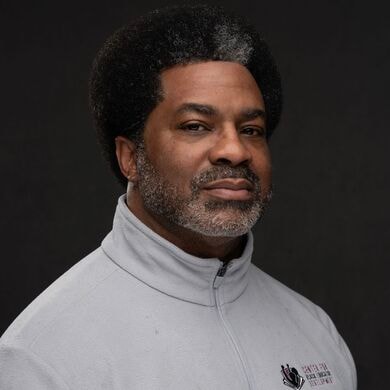
Sharif El-Mekki, Founder/Chief Executive Officer
Sharif is a nationally recognized principal and U.S. Department of Education Principal Ambassador Fellow. His school, Mastery Charter Shoemaker, was recognized by President Obama and Oprah Winfrey, and received the prestigious EPIC award for three consecutive years for being among the top three schools in the country for accelerating students’ achievement levels. In 2014, Sharif founded The Fellowship – Black Male Educators for Social Justice, an organization dedicated to recruiting, retaining and developing Black male teachers. In 2019, he began the Center full time in order to accelerate his mission to rebuild the Black Teacher Pipeline. Sharif is a blogger on Phillys7thWard, a member of the 8 Black Hands podcast, and serves on several boards and committees focused on educational and racial justice.
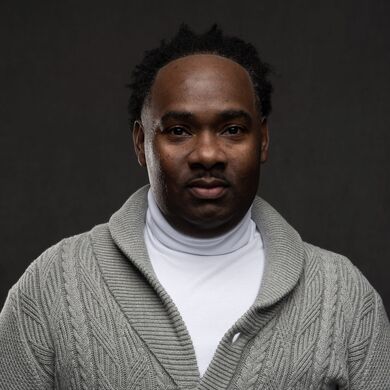
Makael Burrell, Director of Instructional Development
Prior to his role at The Center for Black Educator Development, Makael worked as a School Leader at Baltimore Collegiate School for Boys, Uncommon Schools, and managed teacher leadership and development at Teach For America. He began his education career as a middle and high school Social Studies teacher in Philadelphia. Makael has a bachelor’s degree from The University of Michigan, and a Master’s degree from both Columbia and Harvard University.
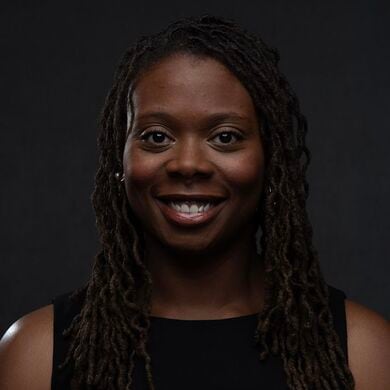
Danielle Thomas, Assistant Director of Professional Development (Greater Philadelphia ‘11)
Danielle is responsible for designing and facilitating culturally proficient workshops and sessions for educators and leaders. Danielle has spent more than a decade working in K-12 settings as an educator, teacher coach, and human resource partner in Philadelphia, PA and Baltimore, MD. She completed her Master’s of Education training at the University of Pennsylvania and undergraduate training in psychology at North Carolina State University. She also worked at Teach For America and held roles as Manager of Teacher Leadership Development, Director of Teacher Leadership Development, Real Time Teacher Coach, Values Based Leadership and Affinity Space facilitator.
Sign up to receive articles like this in your inbox!
Thanks for signing up!
Content is loading...



